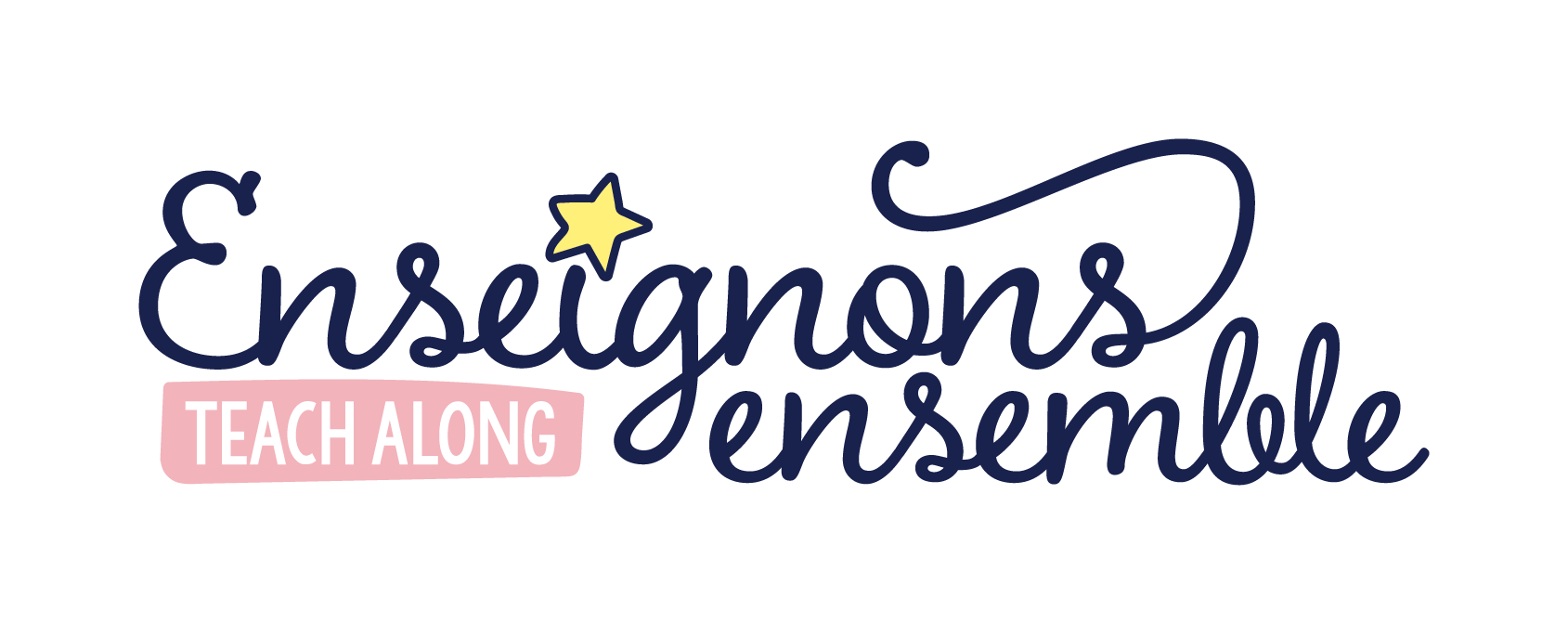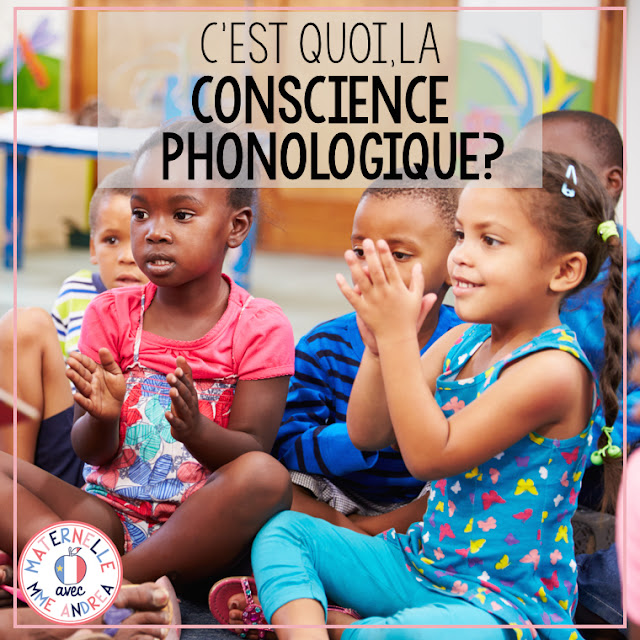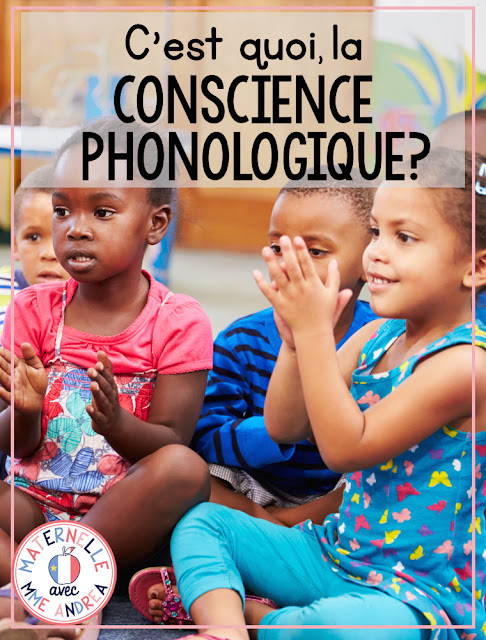In recent blog posts, I talked all about kicking off the school year and what I do with my students the first six-ish weeks of school.
I want to switch gears in this blog post, so I’m going to talk about something that is so important to get started with as soon as possible: la conscience phonologique, also known as phonemic awareness in English.
I’m sure (or, at least, I hope!) you’ve heard all about conscience phonologique before, but I just want to make sure that we are all on the same page.
So if you’re unsure of exactly what your outcomes are talking about when they mention la conscience phonologique, read on to find out more!
La conscience phonologique, or phonemic awareness, is the ability to hear, identify, and manipulate sounds.
Phonemic awareness activities are always done without letters, à l’orale. The second you add letters in there, it becomes phonics instead.
This is something that I didn’t realize when I first started teaching!
It’s SO IMPORTANT that our students have a strong foundation of phonemic awareness skills.
Research shows that students who have strong phonemic awareness skills will become better readers and writers than those who don’t.
This is because students who can’t distinguish and play with the sounds within spoken words have a really hard time recognizing and learning the print=sound relationship between letters and their sounds.
If a student struggles with understanding that relationship, then, of course, they will struggle to read and spell!
There are a variety of components that fall under the conscience phonologique umbrella:
- rhyming,
- alliteration (same sounds at the beginning),
- blending sounds,
- segmenting sounds,
- isolating and identifying beginning/middle/ending sounds,
- removing sounds,
- adding sounds, and
- substituting sounds.
These components are like a hierarchy: Mastering one component will permit your students to be able to learn the next one.
Our students will come to us with a variety of abilities in this area, so it’s important that we practice ALL of the components all throughout the year so that everyone’s needs are being met and everyone can work on new skills.
By practicing, modeling, and supporting our students as they learn these skills, they will become able to do them on their own, without your support.
As conscience phonologique is so key in maternelle, I’ll be doing a little mini-series the next few weeks, explaining more about each component of the hierarchy, sharing some ways you can evaluate your students’ skills, and sharing some simple activities you can do with your students.
Be sure to check back in next week as I dive into more details about all of the skills that fall under the conscience phono umbrella!



